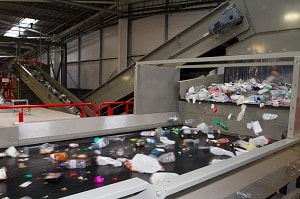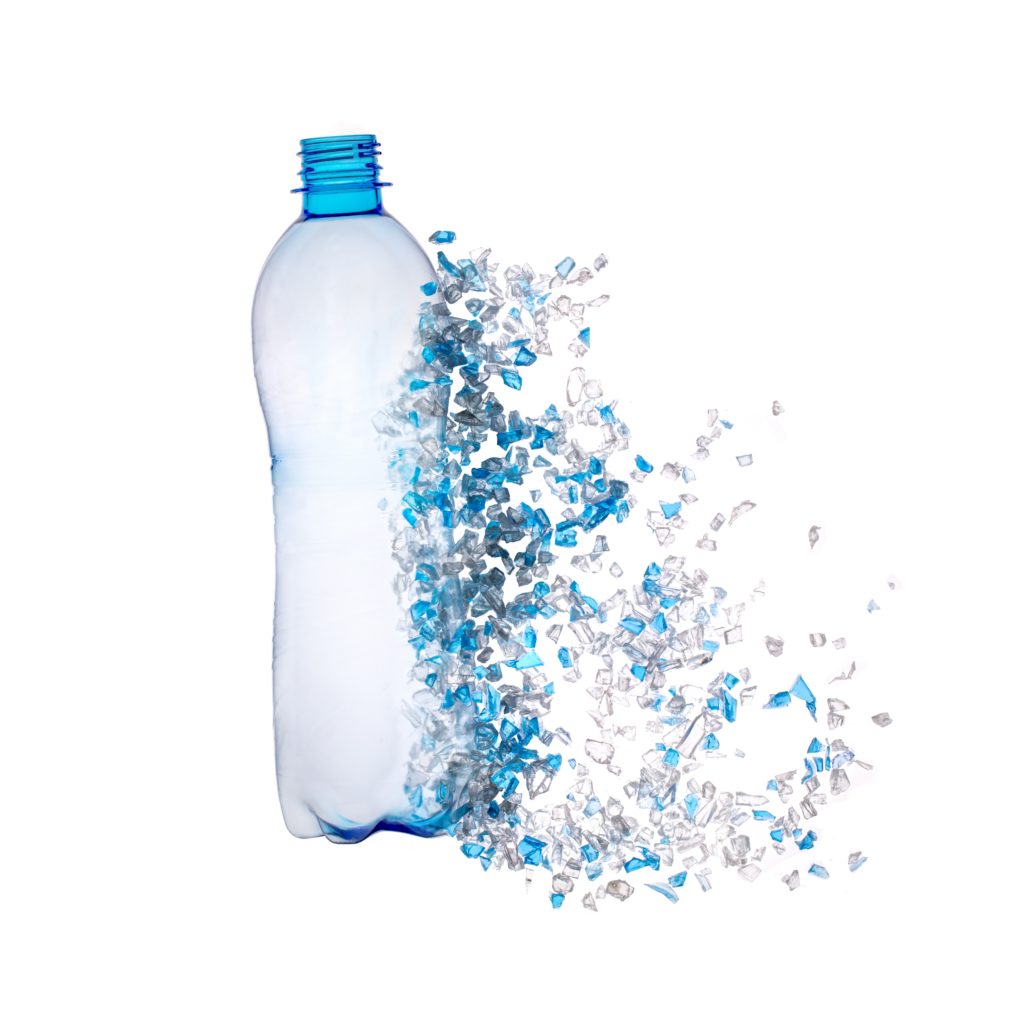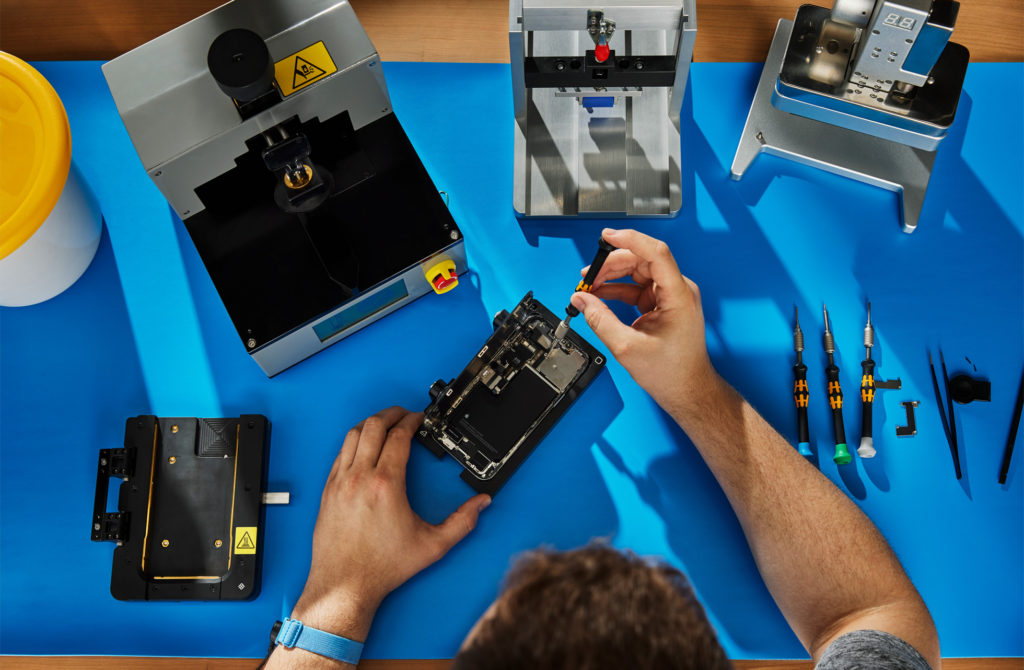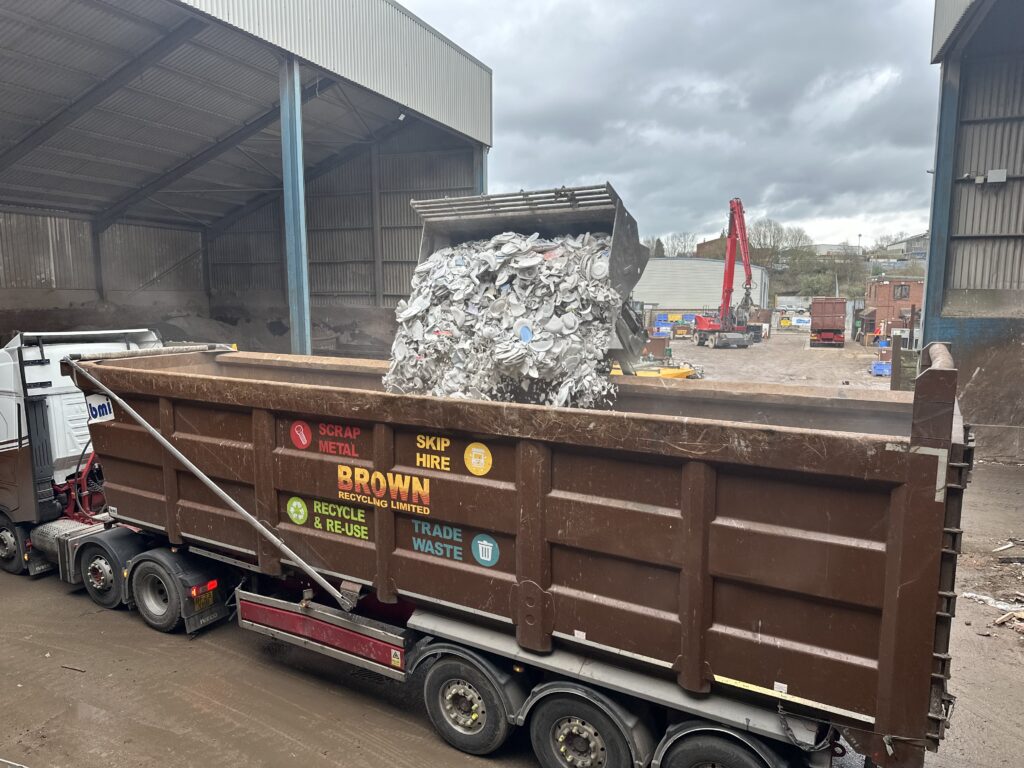The technology, dubbed The Magpie, is set to be installed in the UK for the first time this week at the 30,000 tonne-a-year capacity materials recycling facility (MRF) Veolia is building at Padworth in West Berkshire. The company then plans to retro-fit it in its 10 existing MRFs nationwide.

The Magpie involves commingled recyclables being repeatedly sent under a single optical separating machine, rather than several machines being used to sort different materials.
The machine uses an infra-red beam to look at the molecular structure of materials, with the aim of identifying the most valuable materials first. These are then separated off onto another belt using an air nozzle.
According to Veolia, the approach, which uses both TiTech and Pellenc optical sorting technology, has particular benefits for sorting a number of types of plastics. As such, it claims it could allow councils to collect a wider range of plastics at the kerbside using a single bin.
Veolia also believes The Magpie, which is already in use in Cognac and Lille in France, can be particularly effective for sorting metals.
Speaking at a press briefing on Veolias latest technical developments, the companys head of technology, Richard Kirkman, said: Its been around for a while but we have adapted the equipment so we can keep using one machine for all the material by passing it through again and again.
Otherwise you could have to have 14 or 15 machines as the number of plastics in the bin increases, he said, noting that this meant it would be economically viable to sort a wider range of materials.
And, he added: It will make it easier for people because people who maybe arent recycling will start of recycle if the message is easier.
Mr Kirkman also claimed that, because the technology could be set to sort an ever-changing range of materials, it was future proof against developments in packaging, such as lightweighting.
‘Incineration myth’
During the briefing, Mr Kirkman disputed the myth that Veolias waste activities focus on incineration. We recycle as much as we incinerate, he said, adding that well have more treatment capacity that isnt incineration by the beginning of next year.
Alongside its MRF developments, he outlined the companys plans to develop anaerobic digestion facilities by integrating them into existing in-vessel composting plants.
Mr Kirkman described the approach as being without technical risk and the company now plans to upgrade three of its in-vessel composting plants in this way next year. Veolia currently has five composting facilities nationwide, with a combined capacity of 166,000 tonnes-a-year.
Much has been made about the benefits of AD, but it has yet to achieve its full potential. By combining AD with other technologies, such as composting, we believe AD can have a very bright future in the UK, he said.
Carbon emissions
Mr Kirkman also provided an update on a research project Veolia is undertaking with Londons Imperial College which explores the potential for capturing the carbon gases produced by landfill sites and the incineration process and turning them into biofuels.
The process involves carbon being captured and then sent into liquid adjacent to the EfW or landfill site where it is consumed by algae. Oil from the algae is then extracted and synthesised to biodiesel. This could then be used in Veolias fleet of vehicles.
Mr Kirkman explained that the research was very much for the future, but said that the company was keen to explore whether it could be carried out cost-effectively on a large scale, in particular in light of rising oil prices and the pressure to capture carbon.
Outlining the potential of the technology, Mr Kirkman said: If we grow algae at all of the UKs landfill sites and convert this into biodiesel, we could store five million tonnes of carbon.
Palladium
Veolia is also involved in work to recover the precious metal palladium from street sweepings an initiative which Mr Kirkman said could generate 10s of thousands of pounds of additional income.
The company is using technology from the soil washing industry to separate out recyclable materials from street sweepings, as well as palladium fines. Palladium is present in street sweepings because it is found in car exhausts.
Veolia already has a palladium recovery facility in Ellesmere Port, Cheshire, and Mr Kirkman said it now planned to set up a 30,000 tonne-a-year capacity facility in the West Midlands next year which would sort recyclables and the palladium fines from street sweepings.
Related links
He added: It would bring in an extra half a million tonnes of recycling if it was in 10 towns.
More immediately, the companys soil washing facility in East London will be used to process street sweepings from last weekends Notting Hill Carnival, with fines from there being sent up to Ellesmere Port.











Subscribe for free